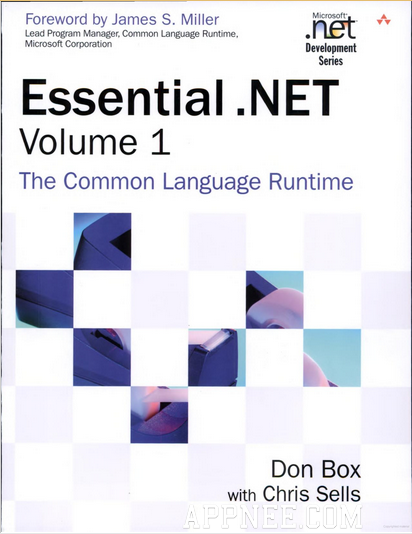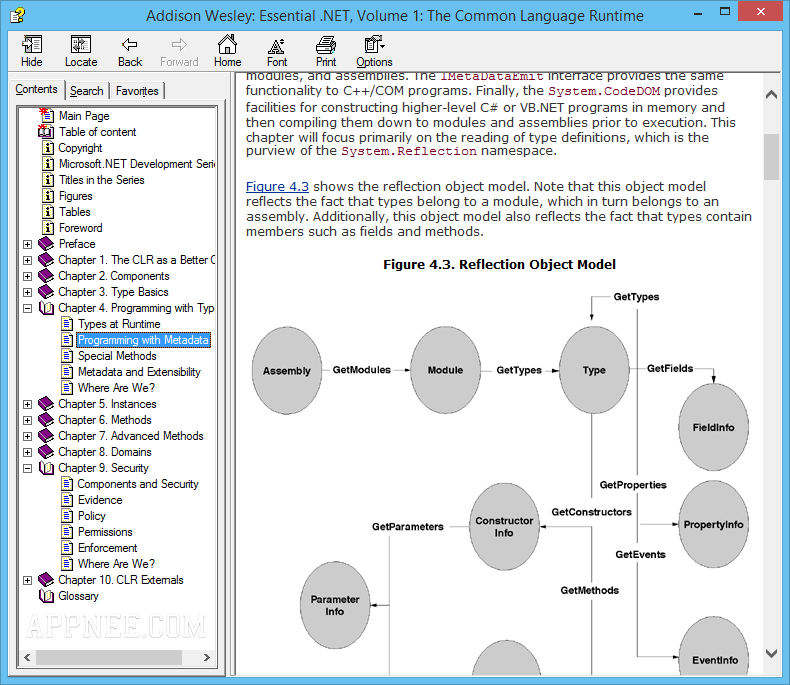
Although Essential .NET, Volume I: The Common Language Runtime has only 432 pages (published in 2002), it contains a lot of practical details and expert-level advice only Don Box can provide. This provides the very important reference and guidance for developers who need to make full use of the Microsoft .NET's powerful features.
As a founder of Simple Object Access Protocol (SOAP) version 1.1 and Microsoft's architect, Don Box deeply discussed the essence of .Net Framework: Common Language Runtime (CLR for short), and revealed the internal working mode of CLR. While helping readers have a more complete understanding to CLR's working mechanism, he guides them how to use the .NET Framework to build better applications.

Table Of Contents
- Chapter 1. The CLR as a Better COM
- COM Revisited
- The Common Language Runtime
- The Evolution of the Programming Model
- Where Are We?
- Chapter 2. Components
- Modules Defined
- Assemblies Defined
- Assembly Names
- Public Keys and Assemblies
- The CLR Loader
- Resolving Names to Locations
- Versioning Hazards
- Where Are We?
- Chapter 3. Type Basics
- Type Fundamentals
- Types and Initialization
- Types and Interfaces
- Types and Base Types
- Where Are We?
- Chapter 4. Programming with Type
- Types at Runtime
- Programming with Metadata
- Special Methods
- Metadata and Extensibility
- Where Are We?
- Chapter 5. Instances
- Objects and Values Compared
- Variables, Parameters, and Fields
- Equivalence Versus Identity
- Cloning
- Boxing
- Arrays
- Object Life Cycle
- Finalization
- Where Are We?
- Chapter 6. Methods
- Methods and JIT Compilation
- Method Invocation and Type
- Interfaces, Virtual Methods, and Abstract Methods
- Explicit Method Invocation
- Indirect Method Invocation and Delegates
- Asynchronous Method Invocation
- Method Termination
- Where Are We?
- Chapter 7. Advanced Methods
- Motivation
- Messages as Method Calls
- Stack and Message Transitions
- Proxiable Types
- Message Processing (Revisited)
- Objects and Context
- Contexts and Interception
- Where Are We?
- Chapter 8. Domains
- Execution Scope and the CLR
- Programming with AppDomains
- AppDomain Events
- AppDomains and the Assembly Resolver
- AppDomains and Code Management
- AppDomains and Objects (Revisited)
- Where Are We?
- Chapter 9. Security
- Components and Security
- Evidence
- Policy
- Permissions
- Enforcement
- Where Are We?
- Chapter 10. CLR Externals
- Memory
- Modes of Execution
- Unmanaged Modules
- Loading the CLR
- The CLR as a COM Component
- Where Are We?
Download URLs
 (3.22 MB | No Homepage)
(3.22 MB | No Homepage)